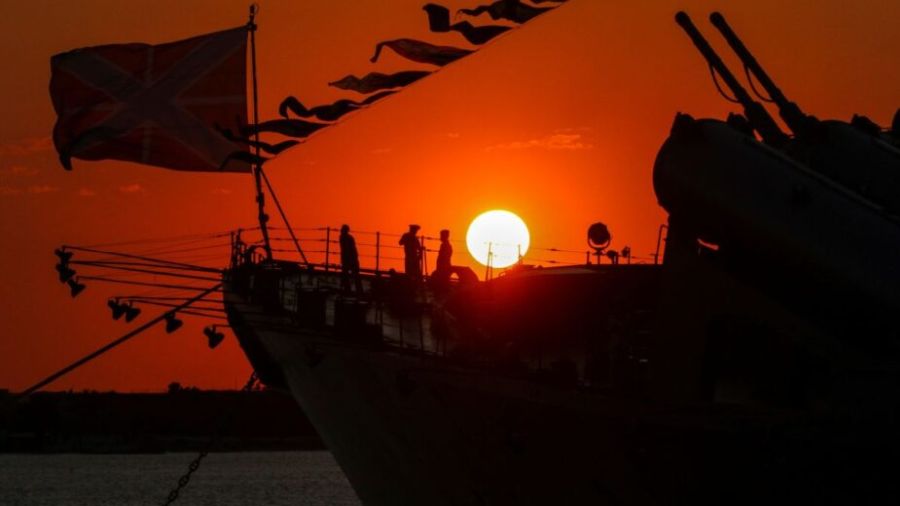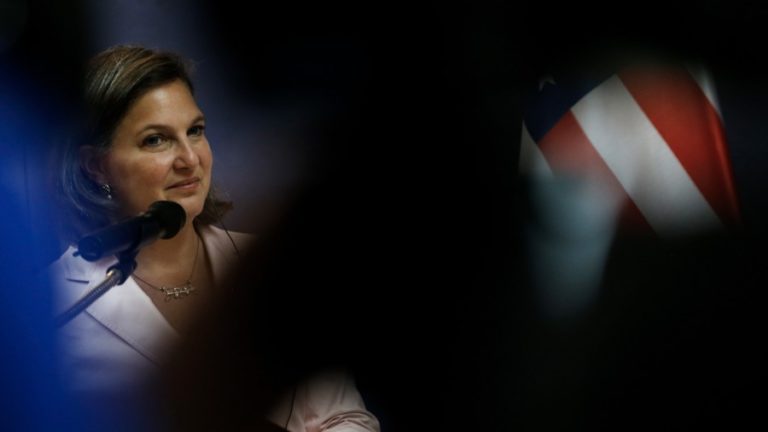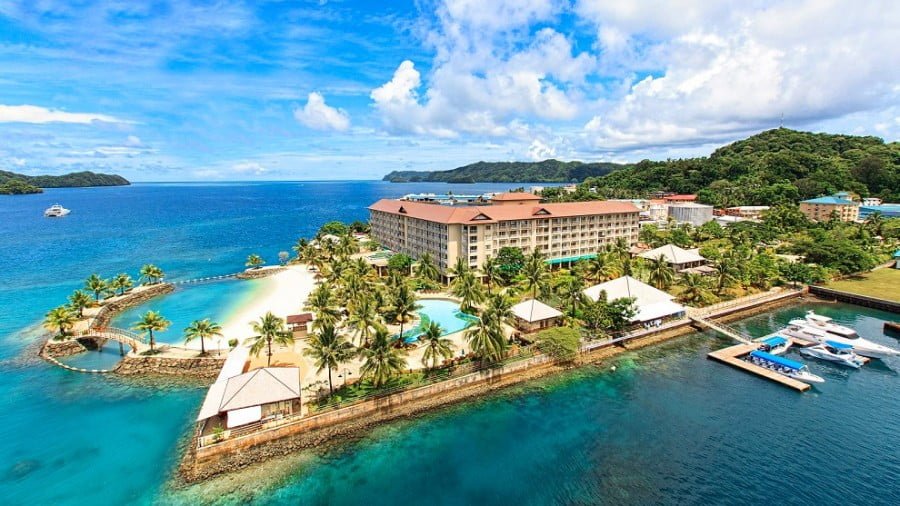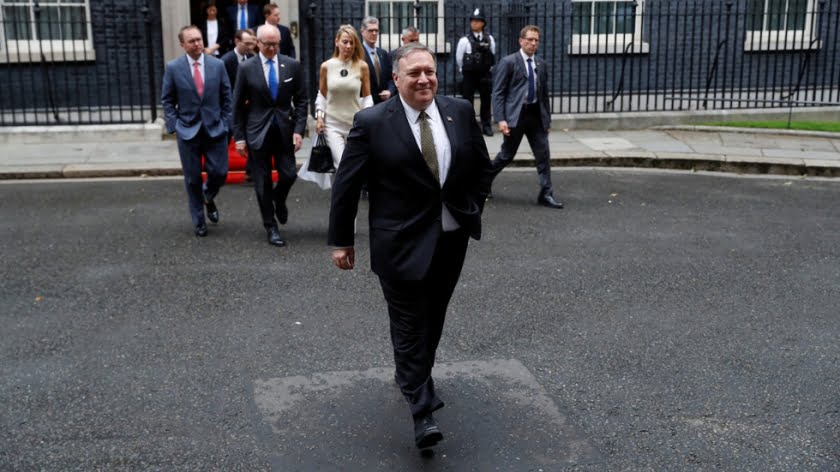Crimea Is Calm, Which Upsets Nato Because It Prefers Confrontation
Crimea continues to be calm and any move that could result in acceptance of the peaceful status quo will be either ignored or resisted.
If there were discontent in Crimea the western media would be full of lip-smacking detail, describing all the dreadful things that were happening. Print and electronic news sources would be revelling in headlining updates about dissatisfaction and there would be rejoicing in the corridors of comfort from Capitol Hill to Westminster via the Pentagon’s billion dollar branch office in Brussels. But although Crimeans are suffering just as badly as anyone else from the Covid epidemic and from the normal problems that exist in any well-conducted society, there is no evidence of rumbling dissatisfaction, and the place is moving along with citizens minding their own business and getting on with their lives. Since accession to Russia they have had a long time in which to voice disapproval of their government but the CIA and other agencies have been unable to foment an uprising of any sort.
Meanwhile, the U.S.-Nato military alliance and its supporters continue to insist that Russia is going to invade Ukraine, and Lithuanian President Gitanas Nauseda joined the clamour by declaring that “We are probably facing the most dangerous situation in the last 30 years, I am talking about not only Ukraine but the eastern flank of NATO.” The “we” in President Nauseda’s announcement referred to the European Union, and it is intriguing that he and others should use the forum of the European Council to make such statements. He was followed by Latvia’s Prime Minister Krisjanis Karins who kept on the same rails by proclaiming that “We really are facing a series of attacks. I see them all as associated,” and according to France 24explained that his fears are “the weaponisation of Middle East migrants on Belarus’ borders with the EU, artificially high prices for Russian natural gas, and Russian disinformation.”
These theatrical and exaggerated statements were made in the context of a meeting of the European Council on December 16, but in spite of their fervour it was heartening that the Council’s agenda and discussion emphasised health and economic matters as distinct from sabre-rattling rhetoric, although the mandatory post-conference warning was given about sanctions being imposed on Russia.
The admirable President of the European Commission, Ursula von der Leyen, gave a good indication of the EU’s positive attitude by declaring that “Europe must deliver solutions to citizens’ immediate problems, notably on the pandemic and its fallout on their daily life, as well as to the long term challenges we face together, like climate change. Our joint declaration shows our commitment to working hard together to deliver solutions on all these issues, from health to climate change, from digital transformation to broad economic prosperity.”
This common-sense approach to obvious problems was part of the “Joint Declaration on EU legislative priorities for 2022” which does not mention the words Ukraine or Crimea but gets its primacies right for the citizens of Europe — now excluding the United Kingdom which carries on its sadly shambolic way, stumbling and lurching from crisis to catastrophe while continuing to spread the story about “a U.S. intelligence assessment which suggested that Russia could be planning an invasion of Ukraine in early 2022.” There were no qualifications about this supposed invasion plot (described in the UK Parliament), even though The New York Times (for example) pointed out that “U.S. officials stress that the intentions of President Vladimir V. Putin of Russia remain unclear, and the intelligence does not show that he has decided to carry out the apparent war plan.” In other words, it is part of the ongoing tide of anti-Russia propaganda that is guided in the main by a desire in some quarters to provide justification for the existence of the U.S.-Nato military alliance.
The psychological operations campaign against Russia has been markedly successful, and there is hardly anyone in the west who, for example, does not believe there was a vast armed invasion of Crimea by Russia in 2014, resulting in its “illegal annexation” by the Federation. Nobody pays attention to the fact, as recorded by the Carnegie Endowment for International Peace, that “On March 16, 2014, Crimea held a referendum in which 97 percent of voters opted to leave Ukraine and join Russia.” But Washington’s orders were clear to western countries, and they dismissed the measure as being illegal.
The Carnegie Endowment points out that “Western countries’ dismissal of the Crimean referendum . . . does not appear consistent with their positions on similar votes held by former Soviet territories. For instance, the United States and Western Europe supported and quickly recognized Ukraine’s and Georgia’s independence referendums in 1991, when they separated from the Soviet Union as it was experiencing upheaval. The West also actively backed Estonia, Latvia, and Lithuania when these former Soviet territories established independence in the early 1990s.” But Washington and its allies choose to ignore precedent and preference because the people of Crimea prefer to be citizens of Russia rather than Nato.
In 2014 I wrote that “some 90% of the inhabitants of Crimea are Russian-speaking, Russian-cultured and Russian-educated, and it would be strange if they did not vote for accession to a country that welcomes their kinship, empathy and loyalty” and noted there was not “a single case of bloodshed in the run-up to the plebiscite, the free vote as to whether the population wished to accede to Russia or support the ‘status of Crimea as a part of Ukraine.’ The Organization for Security and Cooperation in Europe (OSCE) was asked by the government of Crimea to send representatives to monitor the referendum but refused to do so.” The majority of the west’s mainstream media failed to disseminate any positive news about the situation, but the UK’s Independent newspaper reported that “Fireworks exploded and Russian flags fluttered above jubilant crowds after residents in Crimea voted overwhelmingly to secede from Ukraine and join Russia.”
Now that it has proved impossible for the Washington-Brussels Axis to achieve revolution in Crimea, as was done in Ukraine, or to destroy its economy by sanctions, there are few alternatives open for the U.S.-Nato military alliance to further its aim of moving ever-closer to Russia’s borders. But one practical and attractive proposal was fielded by none other than Ukrainian President Volodymyr Zelenskiy who, according to Reuters, said on December 10 that “he did not exclude holding a referendum on the future status of war-torn eastern Ukraine and the Crimea peninsula annexed by Russia in 2014. Zelenskiy did not give detail on how and when a referendum could be held, but said it was one of the options to revive a stalled peace process in eastern Ukraine and end a standoff with neighbouring Russia.”
Although a breath of sanity was wafted from Kiev, there was no positive reaction from any western government. It must have been extremely galling for Washington and its followers to learn that President Zelenskiy said in an interview that “I do not rule out a referendum on Donbass in general. It might be about Donbass, it might be about Crimea”, and it is extremely unlikely that his sensible approach will be endorsed. Crimea continues to be calm, which upsets Nato, and any move that could result in acceptance of the peaceful status quo will be either ignored or resisted. Confrontation is the name of the U.S.-Nato game.







